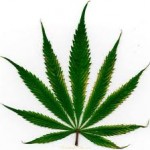
Researcher cites parallels to ending Prohibition.
by Denise Frisino
Whether they realize it or not, residents of Colorado and Washington have traveled back in time — 80 years, to be exact.
The first two states to decriminalize recreational marijuana are sharing in the national experience of 1933: the end of Prohibition. And the similarities are uncanny, says Prohibition-era researcher and author Denise Frisino.
“As with Prohibition and the criminalization of alcohol production and sales, after marijuana possession was banned in 1937 there were many unintended negative consequences,” maintains Frisino, author of Whiskey Cove, a novel based on firsthand interviews with Prohibition-era bootleggers in the Pacific Northwest.
One benefit of decriminalization is that the quality of substances can be monitored.
“The most obvious is the proliferation of corruption and organized gangs. After Prohibition became effective in 1920, America saw the rise of unprecedented crime.”
And, as was true in the 1920s, increasing crime means a greater need for – and expenditures on – law enforcement and judicial services. Enforcing the Prohibition cost the federal government more than $300 million.
In the interest of learning from history, Frisino cites these additional parallels to Prohibition and our contemporary problems with criminalized marijuana:
• Public safety: During Prohibition, there was no regulatory oversight on the production of alcohol, which meant some illegally brewed and tampered with liquors were downright dangerous. “Bad booze actually killed people,” Frisino says. On average, 1,000 people a year died from drinking tainted alcohol. Marijuana, too, can be dangerous when dealers lace their product with chemicals to make it seem more potent. One benefit of decriminalization is that the quality of substances can be monitored. In Colorado, the growing process is strictly monitored from seed to sale.
• Tax revenues: The federal and state governments lost $11 billion in tax revenues during Prohibition, which was especially painful for states like New York, where nearly 75 percent of revenue came from liquor sales. Today, with the country still reeling from the Great Recession, legalization of marijuana will provide some much-needed extra tax income for Washington and Colorado.
• Medical uses: Like marijuana, alcohol has medicinal uses. Physicians of the early 20th century prescribed it for a variety of ailments. During Prohibition pharmacies could sell medicinal liquor, which led to a spike in the numbers of pharmacies as bootleggers set up shop.
• Common criminals: As with marijuana, outlawing alcohol turned many average Americans into outlaws. During the 13 years of Prohibition, jobs were lost and families crumbled as breadwinners went to jail and became stigmatized as lawbreakers. The number of federal convicts increased 561 percent, according to Mark Thorton’s, Policy Analysis: Alcohol Prohibition Was a Failure. In 2004, more than 12 percent of the drug offenders in federal and state prisons were convicted of crimes involving marijuana, according to the Bureau of Justice Statistics. And that’s just prisons – the number doesn’t include local jail populations.
The Prohibition era holds valuable lessons about the unforeseen outcome of criminalizing “vices,” Frisino points out. Rather than reducing alcohol consumption, which was the goal, it actually increased from 1929 to 1933, she says. In addition, legitimate jobs and businesses were destroyed and even restaurants and other entertainment businesses suffered.
“History teaches us that going about change by criminalizing certain behaviors can have a very negative impact on society,” Frisino says.
© Copyright 2013 Denise Frisino, All rights Reserved. Written For: StraightGoods.ca
 Denise Frisino is an award-winning writer, actress and arts teacher. She has spent her summers playing and working in the numerous islands that define the Pacific Northwest, where her family spans four generations. Frisino and her husband spend time at Hood Canal and reside in Seattle. Her novel, Whiskey Cove, is a nominee for the 2013 Pacific Northwest Booksellers Association Award.
Denise Frisino is an award-winning writer, actress and arts teacher. She has spent her summers playing and working in the numerous islands that define the Pacific Northwest, where her family spans four generations. Frisino and her husband spend time at Hood Canal and reside in Seattle. Her novel, Whiskey Cove, is a nominee for the 2013 Pacific Northwest Booksellers Association Award.
Sorry, the comment form is closed at this time.